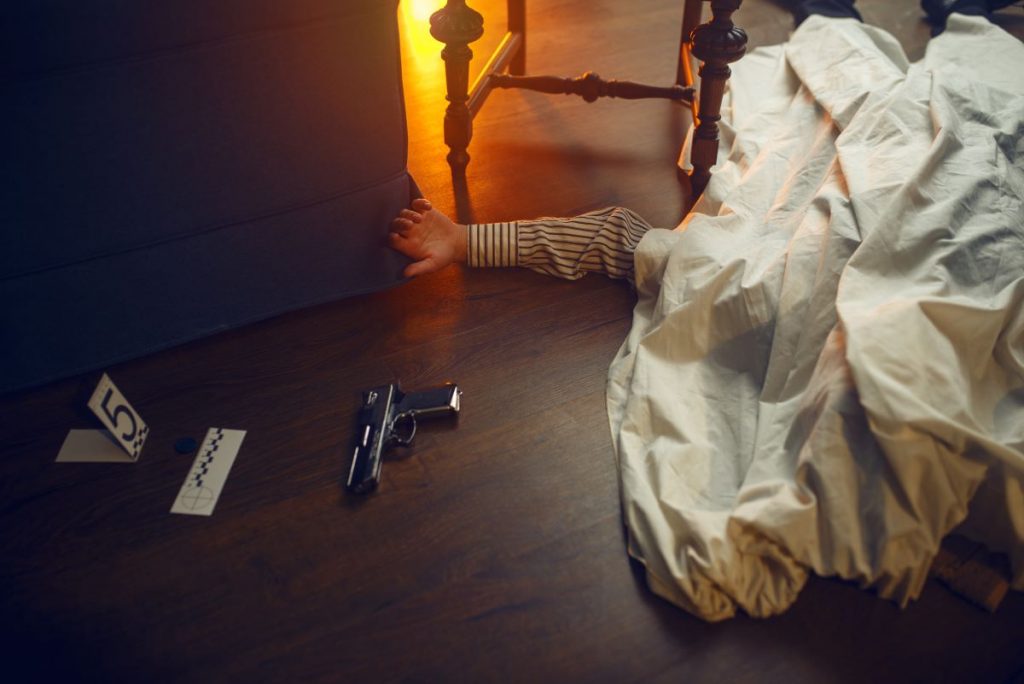Voluntary Manslaughter Defenses

The possible defenses to an accusation of voluntary manslaughter are comparable to those that a defendant may assert in response to other homicide allegations. A person accused of voluntary manslaughter may make an effort to disprove their guilt, assert the justification for their acts, or contend that their actions did not fulfill the criteria for voluntary manslaughter.
The actual defense a person decides to assert in court will depend on the facts of the case, the law of the state they are in, and other factors, however the following is an overview of common voluntary manslaughter defenses.
Genuine Innocence
The best voluntary manslaughter defense is to avoid committing the act in the first place. The burden of proof rests with the prosecution to establish beyond a reasonable doubt that a defendant committed the charged offense; up until that point, the defendant is deemed innocent. A defendant may offer an alibi or contest the veracity of the prosecution’s evidence in order to reject the charges. The defendant will be declared innocent if the jury decides that they have a good-faith doubt regarding their guilt.
Self-Defense
Defenses for voluntary manslaughter in self-defense operate a little differently than they would in the case of a murder accusation.
It is possible for defendants to argue either flawless or flawed self-defense when it comes to a murder case. When there is a justifiable necessity for lethal force to protect one’s life and there is no wrongdoing on the part of the defendant, self-defense is a valid defense. An insufficient justification for using lethal force, improper behavior on the part of the defendant, or both are required for an imperfect self-defense claim.
For instance, the claim of self-defense is flawed if the defendant was the one who initiated the altercation yet still needed to use lethal force to preserve their life. In a murder case, a successful perfect self-defense defense will lead to an acquittal; a successful flawed self-defense defense will typically lead to a charge reduction to manslaughter. The only form of self-defense that can be used in a manslaughter case is a flawless self-defense claim. In reality, making an insufficient self-defense claim means admitting that the defendant committed voluntary manslaughter.
Insanity
The judicial system won’t hold a person liable for their actions if they were legally insane at the time of the homicide. The insanity defense is typically based on the defendant’s inability to comprehend the nature of their conduct or tell the difference between right and wrong.
Although the exact requirements for the insanity defense differ by country, they typically fall into one of the following groups:
M’Naghten’s Law
Test of Irresistible Impulse
Durham’s Rule
The Legal Insanity Test under the Model Penal Code
Accidental homicide
It is occasionally possible to prove voluntary manslaughter and so reduce the allegation to involuntary manslaughter by demonstrating that the homicide was the consequence of an accident. A voluntary manslaughter has an element of intent, as the phrase suggests. A person who commits voluntary manslaughter had the complete purpose to murder or seriously damage the victim, even if it happened in the throes of passion.
On the other hand, an involuntary manslaughter is the outcome of carelessness or recklessness. An involuntary manslaughter may have been committed negligently, but the offender did not intend to kill or seriously hurt the victim. The defendant may be able to change the accusation to involuntary manslaughter if they can demonstrate that the victim’s death was the result of an accident rather than an intentional act.
For instance, Adam and Bob may argue in a parking lot, at which point Adam, furious, gets in his car and begins to drive away. Adam murders Bob’s girlfriend when he smashes her with his automobile while being distracted by his rage. Adam is accused of voluntary manslaughter even though he didn’t mean to hit her. The charges should be dropped to involuntary manslaughter if Adam can demonstrate that it was his negligence rather than any malicious intent that led to her passing away.
Intoxication
A person’s intoxication typically won’t absolve them of criminal activity unless it was an unconscious intoxication (if they were drugged against their will, for instance). This is especially true for defenses involving voluntary manslaughter. Intoxication may successfully reduce a murder charge to one of manslaughter, but it is not a particularly effective defense against a manslaughter accusation. In fact, one of the circumstances under which the crime of manslaughter was created was an inebriated homicide.
Need A Criminal Defense Lawyer In Scottsdale or Phoenix?
Canterbury Law Group’s criminal defense lawyers in Phoenix and Scottsdale will defend your case with personal attention and always have you and your best interests in mind when offering legal solutions. Call today for an initial consultation! We handle criminal defense cases in all areas of Phoenix including Mesa, Tempe, Chandler, Maryville, Apache Junction, and more.
We are experienced criminal defense attorneys and will fight for you to obtain the best possible outcome. Our firm will rigorously represent you, so you can get on with your life. Call today for an initial consultation! 480-744-7711 or [email protected]
*This information is not intended to be legal advice. Please contact Canterbury Law Group today to learn more about your personal legal needs.

